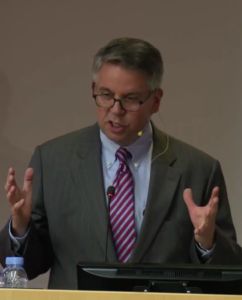
The Evolving Terrorist Threat: Implications for Global Security
Part 3: The War Against al Qa’ida and ISIS: A Net Assessment
Read or listen offline
Recommendation
The George W. Bush administration set lofty goals after September 11, 2001: Iraq would become a thriving democracy, and the United States and its allies would end jihadi terrorism. Alas, the next 16 years proved that dreams of Middle Eastern peace and democracy were far-fetched. The Middle East will never be tranquil, former US defense official Michael G. Vickers flatly says in this lecture and the subsequent interview with RAND Corporation senior vice president Andrew Hoehn. The best hope is to contain the terror threat to allow the region to stabilize – but even that reduced goal will require constant vigilance, Vickers posits. getAbstract recommends this speech to policy makers and global investors seeking insight into the chaos in the Middle East.
Take-Aways
About the Speaker
Michael G. Vickers, PhD, is the former US undersecretary of defense for intelligence and the former assistant secretary of defense for special operations and low-intensity conflict.
















Comment on this summary or Comenzar discusión